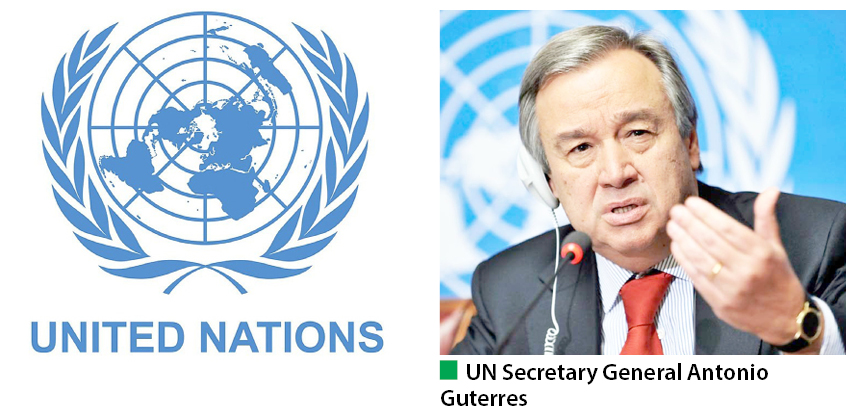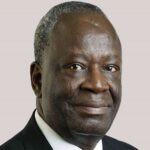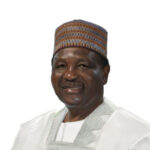Within the past week, four resolutions, proposing either a ceasefire or humanitarian pause in the Israel-Palestine war have all failed for not meeting the required votes or have been vetoed by a permanent member (P-5) of the UN Security Council due to disagreement over clauses or missing words in the text of the resolutions.
With Russia and China on one side, the West, represented by the United States, France and United Kingdom on the other side, members of the P-5 continue to block resolutions while thousands of people continue to die, with more than 1.5million displaced, in need of basic humanitarian supplies in the three-week conflict.
This coincides with the 2023 United Nations Day marked every October 24, the essence of which now seems to be drowned by the prevailing conflict.
The 2023 UN Day, titled “Equality, Freedom and Justice for All” is in contrast with recent happenings in the Israel-Palestine conflict that has so far defied even the UN uniting for peace resolution 377 that makes room for emergency special sessions, where the General Assembly passes a resolution on any matter, albeit not binding.
Foreigners troop to Nigeria as citizens japa in search of greener pastures
War on Gaza: Israel Begins Ground Invasion As Humanitarian Crisis Deepens
In its 39th meeting of the 10th emergency special session on the Palestine question, the U.N. General Assembly approved a resolution, calling for a “humanitarian truce” in Gaza leading to a cessation of hostilities between Israel and Gaza.
The 193-member world body adopted the Arab-drafted resolution by a vote of 120-14 with 45 abstentions after rejecting a Canadian amendment backed by the United States.
However, this emergency special session has not been concluded as the Palestine question is yet to be addressed once and for all.
In his remark at the UNGA 78, Kenyan president said, “If any confirmation was ever needed that the United Nations Security Council is dysfunctional, undemocratic, non-inclusive, un-representative, and therefore, incapable of delivering meaningful progress in our world as presently constituted, the rampant impunity of certain actors on the global scene settles the matter.”
This underscores the downside of the United Nations as highlighted in Daily Trust on Sunday analysis on “Israel-Palestine war: UN Security Council Under Scrutiny.”
The potency of the United Nations to maintain global peace has been undermined by several factors, some which are embedded in the articles of the UN charter.
Non-binding resolutions
Many have pointed to the poor enforcement mechanism of UN resolutions as one of the weaknesses of the multilateral organisation, specifically the non-binding nature of UN General Assembly resolutions.
According to article 10 of the UN charter, “the General Assembly may discuss any question or matter within the scope of the present charter or relating to the powers and functions of any organs provided for in the present charter, and except as provided in Article 12, may make recommendations to the members of the United Nations or to the Security Council or to both on any such question or matter.”
This automatically empowers the 15 member UN Security Council to be the highest decision-making organ of the UN. It means that resolutions taken by the entire 193 member nations are non-binding on member states.
Some analysts consider this structure to be undemocratic, non-inclusive, lacking in the holistic representation of global interest.
Abuse of veto by the P-5
As highlighted in Daily Trust on Sunday, analysts said the political interest of permanent members of the UN Security Council often hindered resolutions on global peace.
Consisting of 15-member states, the UNSC has 5 permanent members (Russia, China, US, UK, France) with powers to veto resolutions and 10 non-permanent members.
For any resolution to be adopted, 9 of the 15 members must vote in favour, with no objection from any of the five permanent members, except where they abstain.
In the most recent demonstration of this power, resolutions for ceasefire and humanitarian pause in the Israeli-Palestine war, proposed by Russia and Brazil failed.
The United States, for instance, which has unequivocally expressed its support for Israel, has vetoed dozens of United Nations Security Council (UNSC) resolutions critical of Israel, including at least 53 since 1972, according to UN data.
Western domination
When the UN was created in 1945, there were only 51-member states, most of them independent countries from the West. As at now, there are 193-member states of the UN, yet very few reforms have been made to accommodate inclusivity in the critical decision-making organs of the multilateral organisation.
Many leaders from Africa and the global South view the exclusion of their countries from having a permanent representation at the UN Security Council and the limitation of voting powers at the global financial institutions, such as World Bank and the International Monetary Fund (IMF) as an unfair arrangement working against their domestic interest.
For instance, Kenyan President William Ruto is among African leaders who have been very vocal about reforms at the global financial institutions in favour of inclusivity.
At the New Global Financial summit in Paris in June, Ruto described “The current financial architecture is unfair, punitive and inequitable.
“The countries of the South pay up to eight times more interest than developed countries because they are considered risky,” he added.
To achieve this, he argues that the IMF and the World Bank needs to be reformed, the debt management of developing countries needs to be rethought, and new fair taxes need to be created at international level.
Despite its shortcomings, it is important to reflect on the impact of the United Nations on global peace in its over 75 years of existence.
Decolonisation
Beginning with the recognition of the role played by the United Nations in the decolonisation of Africa, it is worthy of note that UN General Assembly resolution 1514 (XV) on the Granting of Independence to Colonial Countries and Peoples was adopted in 1960 – the year now referred to as the Year of Africa, when 17 African countries, including Nigeria, gained independence.
Before the declaration on decolonisation by the UN, an estimated 750 million people – almost a third of the world’s population as at 1945 – lived in territories that were non-self-governing, dependent on colonial powers.
Now, more than 80 former colonies have gained their independence, with 17 Non-Self-Governing Territories remaining and fewer than 2 million people living in such territories.
Humanitarian support
As at now, there are 24 UN aid organisations catering for the various humanitarian needs of hundreds of millions of people displaced by conflict, climate change, food shortages, natural disasters, among others.
Data by the Office for the Coordination of Humanitarian Affairs indicates that in 2022 alone 157 million (79 per cent) of the targeted 216 million in 35 countries benefitted from at least one form of aid during the year.
Data also shows UN agencies supply 45 per cent of the world’s children with vaccines, saving an estimated 2 to 3 million lives each year from preventable diseases.
UN assistance ranges from the area of food security and nutrition, inclusive health care, multi-sectoral humanitarian assistance, support, to refugees to mention a few.
International law
Among the greatest achievements of the United Nations is the development of a body of international law, which defines the rights to equality, free movement, education, religion, asylum etc. These laws are enshrined in conventions, treaties and standards.
With 13 or more international conventions aimed at protecting the environment, regulating migrant labour, curbing drug trafficking, combating terrorism, among others, the statutes embody the legal frameworks with which member countries are expected to abide by.
The 1949 Geneva Convention for the Protection of War Victims for instance encompasses the principles and rules that regulate the means and methods of warfare, as well as the humanitarian protection of civilian populations, sick and wounded combatants and prisoners of war.
Although the United Nations has fallen short of expectations in meeting the objectives it was set out to achieve, the world has been made better in part due to the role of the UN.
To realise the goals of the organisation, it has become pertinent to reform areas identified as deterrent to the organisation’s full objective.

 Join Daily Trust WhatsApp Community For Quick Access To News and Happenings Around You.
Join Daily Trust WhatsApp Community For Quick Access To News and Happenings Around You.

